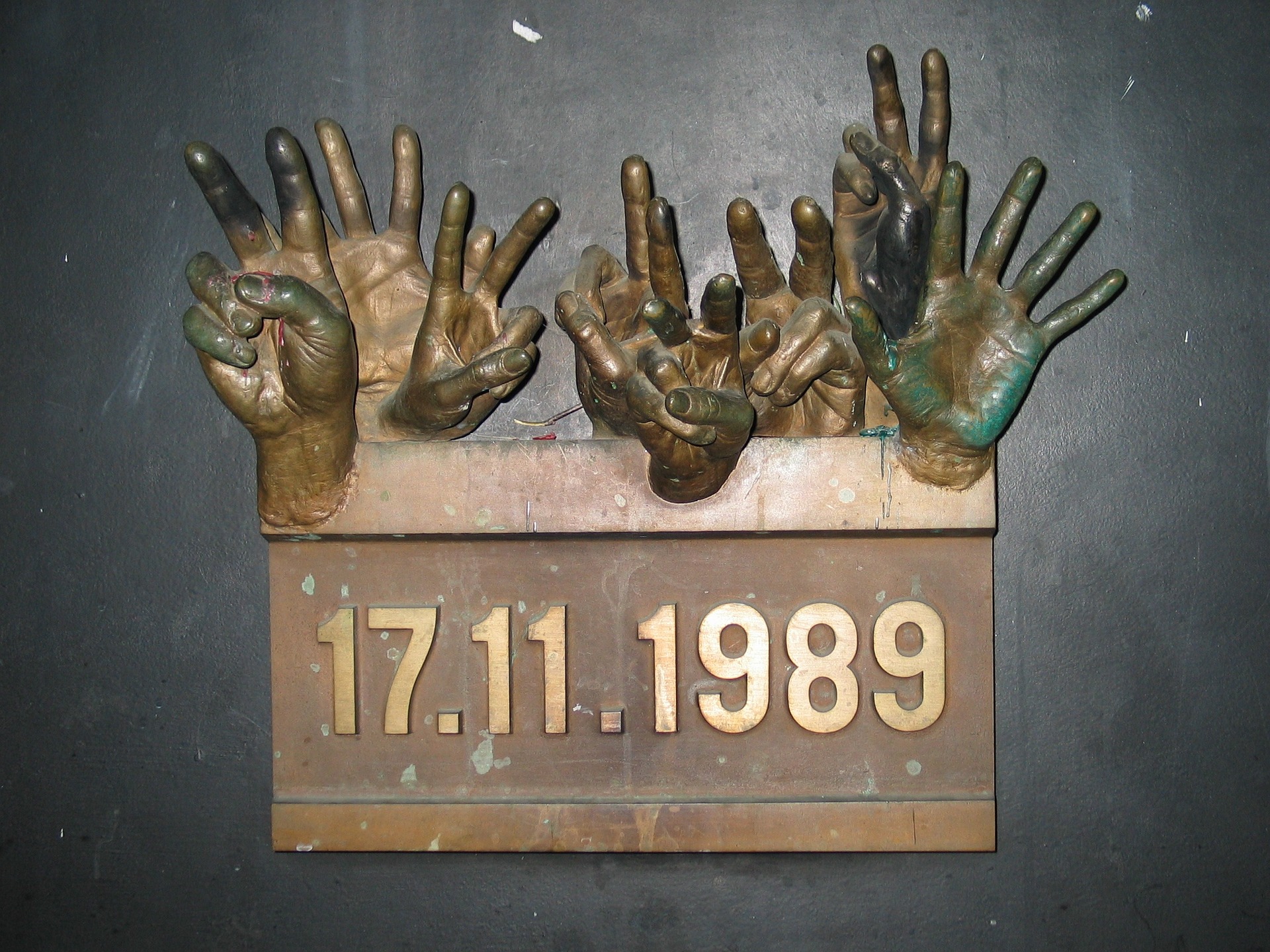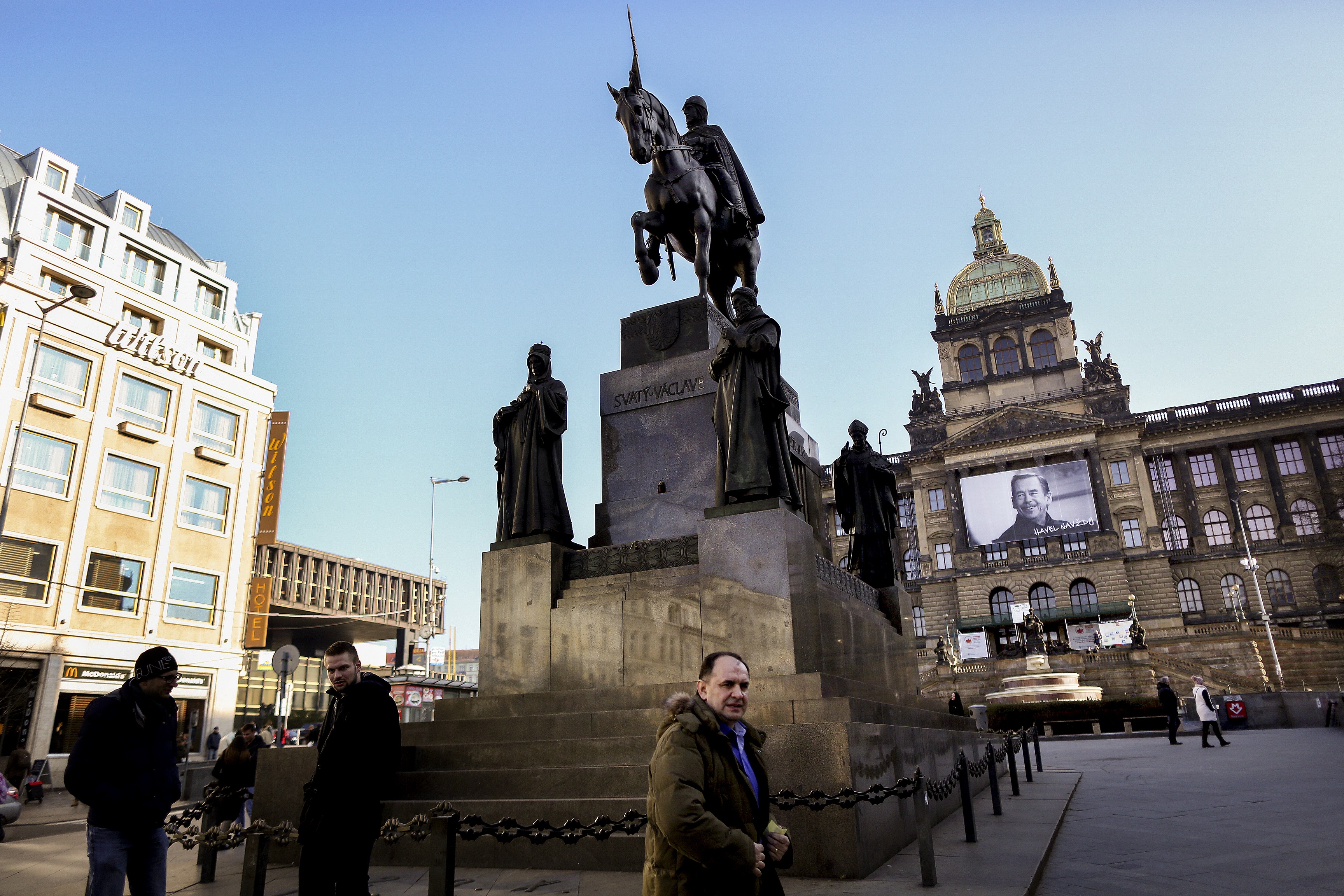The Story of the Velvet Revolution:
A Leap for Democracy

–
The Velvet Revolution was “swift, entirely non-violent, joyful and funny.”
Timothy Garton Ash, historian
On November 17, 1989, a student march in Prague set in motion a change that would affect the entire country. Within 12 days of this march, the Communist government was falling apart and just after Christmas 1989, Czechoslovakia would become a democracy. This movement had a pan-European significance due to its link with the continued fall of the iron curtain. It received its name from the fact that after November 17, there would be no more violence; not a single person would die in this rebellion. The moment would become known as the Velvet Revolution.
I will say at the start of this blog that so much happened of great importance during the revolution that a few well-written books could not fully cover the subject. Due to the brevity of this writing, only a very few points can be touched upon.
The march was held in remembrance of a student martyr from the Nazi occupation, Jan Opletal. Apart from that, this peaceful demonstration also had an anti-communist tone. Their route led them toward Wenceslas square. A large force of police in riot gear was assigned to block the march. Upon encountering the riot police, the marchers mirrored the 1960s movement in the US and tried giving the police flowers and held their hands in the air to show they were empty of any weapon. The police were ordered to attack anyway. Though numbers vary slightly somewhere around 600 of the 15000 marchers were injured, many seriously.

The reaction from the population was immediate. In the next few days, protests began throughout the entire country. For the first week or so, most of the news was communicated by students travelling to various cities but after about two weeks, the press began reporting the news from Prague. On November 19, the Civic Forum, an organization of anti-communist leaders, was formed. It was led by Václav Havel, a popular dissident and playwright. This group would be the official “voice” of the movement demanding the resignation of the Communist leaders, freedom for political prisoners, and an investigation into the events leading to the police attacks against the student march.
The reaction to the police attack truly caught the members of the government off guard. Even with the fall of the Berlin wall on November 9, most officials didn’t expect a change in Czechoslovakia. In an attempt to calm the reaction, the President of the Communist Party resigned and a fairly unknown replacement was appointed in his place. The idea was to demonstrate changes in the party. This did nothing to calm the protesters and their actions escalated.
On November 25 and 26, protests numbering close to three-quarters of a million people were held in Letná Park and a two-hour work stoppage on the 27th showed the depth of the movement and the intent of the Czech and Slovak population. Continuous protests in Wenceslas square and throughout the country reinforced the point. Czechoslovakia was changing rapidly.

By November 29 the Civic Forum demanded and saw changes to the constitution, removing much of the communist power as well as the Marxist-Leninist teachings. These changes were unanimously voted in by the parliament. By then it was apparent as to which way the political winds were blowing. And this was much more like a storm.
By December 10 the government restructured itself again. The musical chairs of the government change removed more communist representatives and added other parties to the mix. Still not content, a general strike was planned for December 11. This was cancelled after the communist president Gustav Husák stepped down.
A nervous but hopeful Christmas came and went and on December 28 Alexander Dubček was elected speaker of the Federal Assembly. This was important on a number of levels. Dubček was one of the main leaders during the Prague Spring in 1968, an attempt by Czechoslovakia to become more democratic. This movement gained momentum until the Warsaw Pact countries guided by Russia invaded the country. This invasion put an end to the possibility of democracy until 1989. Though the possibility was stifled, the hope remained in the guise of people like Dubček. Though he was much more than a cosmetic vote, the meaning of this election cannot be overlooked.
The next day Václav Havel was voted President of Czechoslovakia. The elections of 1990 showed a continued effort to change by the citizens with a resounding 96% of the population voting for the Parliament and 73% involved in local elections. Even though the revolution was over, there would be many problems facing the country and this change of direction was not easy.
The people of Bohemia have had about 50 years of freedom since 1620, the longest span is the one we are in now. Today, on November 17, raise a beer to this unique revolution, to the people who were involved, and to the times yet to come.
November 17, 2021

